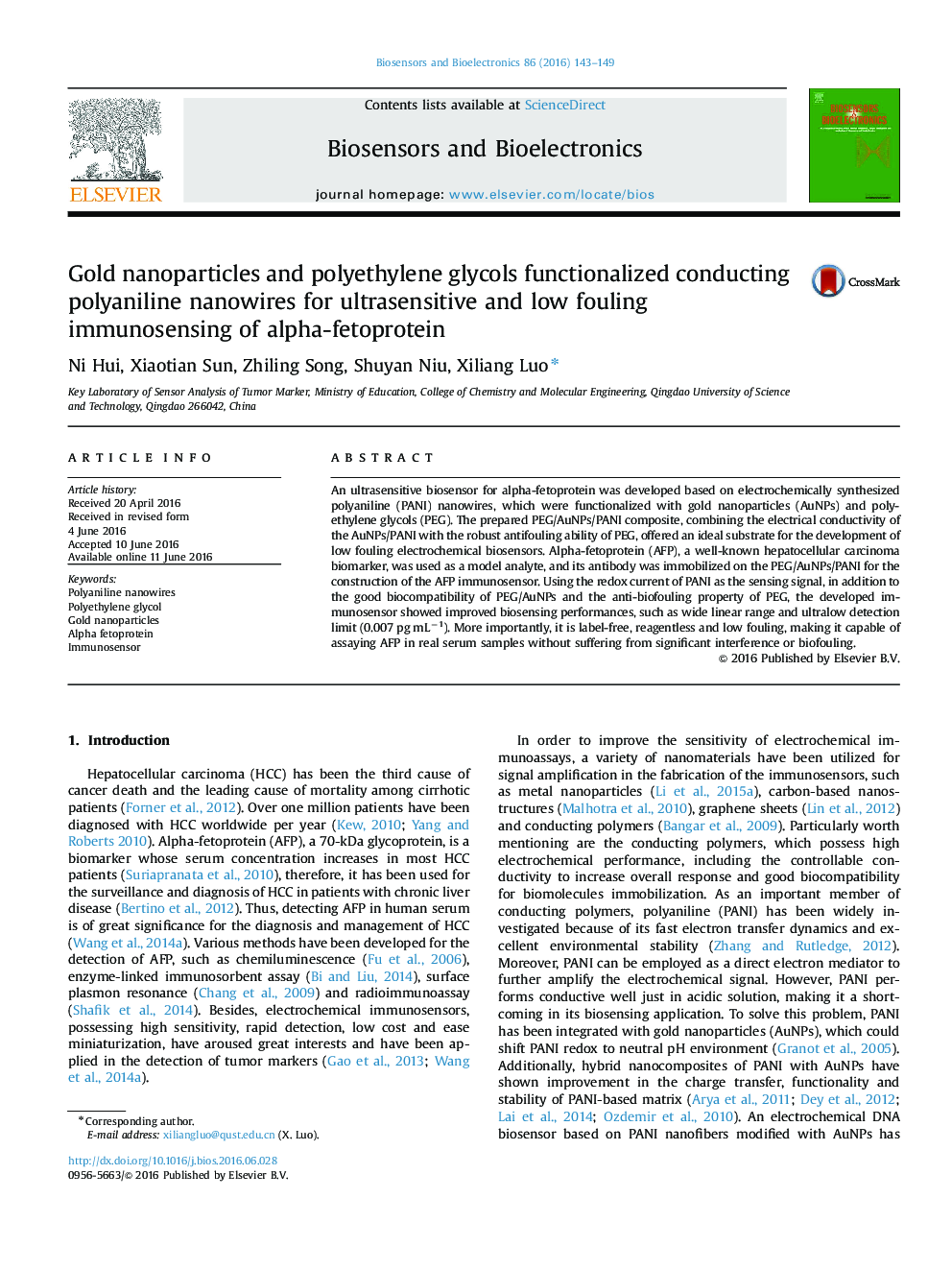| Article ID | Journal | Published Year | Pages | File Type |
|---|---|---|---|---|
| 7230080 | Biosensors and Bioelectronics | 2016 | 7 Pages |
Abstract
An ultrasensitive biosensor for alpha-fetoprotein was developed based on electrochemically synthesized polyaniline (PANI) nanowires, which were functionalized with gold nanoparticles (AuNPs) and polyethylene glycols (PEG). The prepared PEG/AuNPs/PANI composite, combining the electrical conductivity of the AuNPs/PANI with the robust antifouling ability of PEG, offered an ideal substrate for the development of low fouling electrochemical biosensors. Alpha-fetoprotein (AFP), a well-known hepatocellular carcinoma biomarker, was used as a model analyte, and its antibody was immobilized on the PEG/AuNPs/PANI for the construction of the AFP immunosensor. Using the redox current of PANI as the sensing signal, in addition to the good biocompatibility of PEG/AuNPs and the anti-biofouling property of PEG, the developed immunosensor showed improved biosensing performances, such as wide linear range and ultralow detection limit (0.007 pg mLâ1). More importantly, it is label-free, reagentless and low fouling, making it capable of assaying AFP in real serum samples without suffering from significant interference or biofouling.
Related Topics
Physical Sciences and Engineering
Chemistry
Analytical Chemistry
Authors
Ni Hui, Xiaotian Sun, Zhiling Song, Shuyan Niu, Xiliang Luo,
